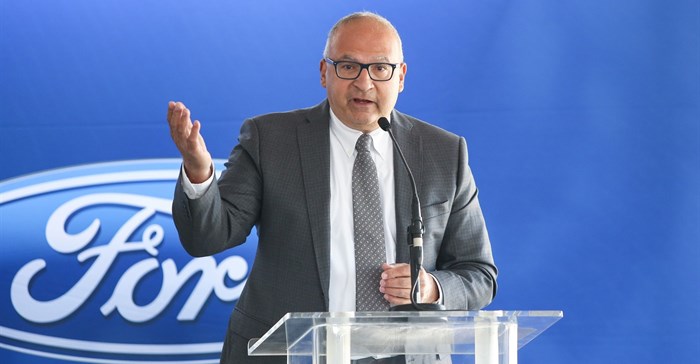Henry Ford once said: "A big business never becomes big by being a narrow society looking after only the interests of its organisation and stockholders." He believed, and proved, that a business performs better when it pursues a greater purpose, not just profits.

Jim Vella, president of Ford Motor Company Fund and Community Services
While charitable expenditure is done without the expectation of direct financial gain, it’s not without its own rewards. Private-sector investment in projects that promote social mobility, improve community prosperity, and empower more people to become self-sufficient, can have far-reaching benefits. In fact, philanthropy and good corporate citizenship are now recognised as important business drivers, adding to a company’s competitiveness and favourable long-term prospects.
Boost employee morale
For example, if there’s a choice between just buying a product, and buying a similar product from a company that is actively involved in making the world a better place, a growing number of discerning customers with increasingly sophisticated buying habits are more likely to choose the latter. Furthermore, philanthropic initiatives boost employee morale. Employees also like to know that the company they work for is making the world a better place. And the more engaged employees become, the better a business performs in the marketplace. It’s a virtuous cycle!
I think it’s the way in which philanthropic initiatives are operationalised and implemented that is crucial to delivering a successful return on investment. First and foremost, they should be aligned with the parent company’s core business objectives and fully integrated into its long-term planning and broader mission. Philanthropy should never be an add-on or an afterthought. Executives working in this space need to be business savvy in order to maximise limited resources. The philanthropic portfolio should be regularly assessed, and a company’s giving strategy constantly refined to create the greatest social and economic value for all stakeholders.
What does this look like at the Ford Fund? As the philanthropic arm of Ford Motor Company, we support Ford’s vision of becoming the world’s most trusted company through our core mission of strengthening communities and making people’s lives better. How do we do this? Quite simply, we provide access to opportunities and resources that help people reach their full potential.
Four main focus areas
Whether we’re feeding the hungry, providing mentors or access to capital for social entrepreneurs, or supporting multicultural initiatives, our work centres around four main areas of focus: education, community life, driving safely and employee volunteering. In many cases, our philanthropic projects are submitted to us by local Ford employees, Ford dealers or non-profit organisations. By working at a grassroots level with these and other partners, we are able to help drive – and sustain – transformational change for people in need in communities where Ford does business around the world.
One of the Ford Fund’s signature programmes is Global Caring Month. Every September, our Ford Volunteer Corps enlists teams of more than 30,000 Ford employees, dealers, and retirees in more than 40 countries around the world to roll up their sleeves and get involved in local projects. This year, our South African teams chose to support a huge variety of upliftment initiatives such as: child and youth care centres, community centres, early learning centres, educational centres, feeding schemes, housing projects, primary schools, schools for children with special needs, and more. For us it’s about so much more than just writing cheques or donating vehicles. There really is a heart behind the Blue Oval, and it beats in the hearts of all our employees.
The bottom line is, businesses do not function in isolation from the society around them. They are dependent on the social, environmental, and economic sustainability of the communities in which they operate. Philanthropy in the for-profit world is no longer a nice-to-have, it’s a have-to-have, not just for companies, but society at large. And not just for this generation, but generations to come.





































